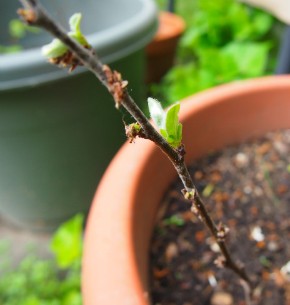Harvest in due time

I’m on an Innovative Ministry Percolator (IMP) conference call, looking at the profiles of several church planters on my computer screen and talking with them about the amazing things their communities have accomplished. They’re also talking about their concerns.
IMP is a network of church planters who want to change the way we all think about and fund new ministries. Its members come from different denominations, and most of the worshiping communities were started with denominational grants. But the grants often last only three years, and it takes eight to ten years to plant a church that can support a minister. On the phone, one pastor explains how a funding source for a new worshiping community unexpectedly dried up. Another pastor confides to me later. “They wanted us to do this. They begged us to do this. Now they’re turning their backs on us.”
Read our latest issue or browse back issues.
These pastors need a robust support system. Their churches often minister with people who are younger, differently abled, immigrant, or homeless, and their members may not have the resources of an established congregation. IMP wants the greater church to begin thinking of church planters as missionaries, with IMP acting as a mission agency to provide a network of support, tell stories, and raise money.
“We’re not making disciples in the same way. This is slow work. It’s going to take a while,” said Jeff Richards, founding pastor of WordHouse in Sacramento.
I helped start IMP when the realities of beginning a new community became personal. About five years ago, my husband, Brian Merritt, and I were pacing on the back porch of our house in the D.C. area: Brian wanted to start a church, and we were looking over our list of pros and cons. He had gone through our denomination’s discernment process and found that he was well suited for the job. He had possible funding for three years in Chattanooga, Tennessee.
On the pro list, the move would let me focus on freelancing as a writer and speaker, and our cost of living would decrease in Tennessee. My research indicated that our denominations needed to start new ministries, so we would be able to practice what I preached.
On the con list, I wrote “no stability.” There was no pastoral position open for me, so we would be giving up a steady income after 15 years in the ministry. Brian looked at me, took a deep breath, and said, “With a grant, we have stability for three years. Not many people in our profession have secure positions for that long.”
I thought about that. We entered the ministry at the new millennium. Although we’ve had wonderful job opportunities, most of our congregations have struggled through decline and an economic crisis. We have friends who accepted calls to small churches only to find out that they’d been called to close those congregations. Even those in stable positions have felt the clinching of “silver handcuffs,” meaning they couldn’t move even when things became unbearable for them, because there were so few positions at the same professional and income level.
We decided that even with the uncertainties, the pros outweighed the cons. We moved to Chattanooga.
Each month IMP reminds me that we’re not alone in this work. We hear stories about grants that can be renewed but depend on a particular committee, and about how the vision of the committee changes as its members come and go. When they make decisions, these people are affecting the future of churches they’ve never been to and the lives of pastors they’ve never met. I can point to many faithful people who took great risks, moved their families, and sacrificed their savings, and then just as they gained momentum with new church communities, they were turned down for a grant needed to move forward.
I often hear about the need for new church plants to be sustainable, and that is a goal of most new communities. But have denominations set up a model that is sustainable for pastors? Or do we burn out innovative leaders who are doing the job that denominations most need done?
When churches send missionaries overseas, they understand the missionaries’ need to be supported for the long term. The missionaries plant churches and provide stories of their work. Could church planters in the United States amplify our stories if we work together? Could we provide accountability, support, and resources?
Members of the IMP have a good time together, laughing about frustrations and finding hope in difficult ministry settings. These pastors often have to defend their worshiping communities because they may not look like established congregations. They have developed different models of ministry, many of them key to the vitality of the church in a new time. They also know how to find and implement new models of support.
In their work they’re leaning on the example of Paul, who started all of this. Perhaps all of us—pastors and congregations, established or newly planted—just need to remember our history.







